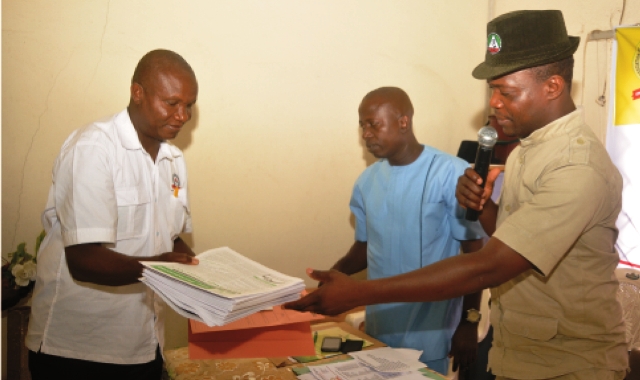Business
Group Wants Wike To Introduce Mechanised Agric

Agroup under the aegis of Maritime Energy Media Practitioners of Nigeria (MEMPON), Rivers State, has called on Governor, Nyesom Wike to introduce mechanized agriculture in the state.
The group in a statement by its President, Dr Ralph John and the Secretary Golden Onyema said mechanised agriculture would better the lot of the citizens.
According to the statement it would also bring sufficient food and create employment opportunities for the people especially the youths, so that they could be gainfully engaged from acts inimical to the society.
The statement further noted that it was hightime to de-emphasise over dependence on oil as a major source of revenue.
It reiterated the need for the East-West road to be a six-lane multiple road in line with other global road networks because of its importance to the economy of the state and Nigeria in general.
It stressed that the East-West road leads to some viable industries in the state, including two refineries, a petrochemical and fertilizer company, Federal Ocean and Federal Coghter Terminals, Nigerian Navy Base and Nigeria Ports Authority, Oil and Gas Free Zone among others.
The statement urged President Muhammadu Buhari to take further steps to clean up other Niger Delta polluted areas in the nearest future, and described the flag-off of the clean up of Ogoni land that had been environmentally polluted as a step in the right direction.
It advised the people of Rivers State to maintain peace at all times for effective development to take place in all parts of the state.
The group congratulated Governor Wike on his developmental strides within his one year in office and enjoined him to sustain the tempo.
Collins Barasimeye
Transport
Automated Points Concession : FAAN Workers Gave 72hrs To Revise Decisions In PH

Transport
FAAN Announces Pick-Up Points for Go-Cashless Cards

Business
Fidelity Bank To Empower Women With Sustainable Entrepreneurship Skills, HAP2.0
-

 Politics4 days ago
Politics4 days agoSenate Urges Tinubu To Sack CAC Boss
-

 News4 days ago
News4 days agoAmend Constitution To Accommodate State Police, Tinubu Tells Senators
-

 News4 days ago
News4 days agoDisu Takes Over As New IGP …Declares Total War On Corruption, Impunity
-
Business4 days ago
Crisis Response: EU-project Delivers New Vet. Clinic To Katsina Govt.
-
Business4 days ago
President Tinubu Approves Extension Ban On Raw Shea Nut Export
-
Business4 days ago
President Tinubu Extends Raw Shea Nuts Export Ban To 2027
-
Business4 days ago
Fidelity Bank To Empower Women With Sustainable Entrepreneurship Skills, HAP2.0
-
Sports4 days ago
NDG: Rivers Coach Appeal To NDDC In Talent Discovery

